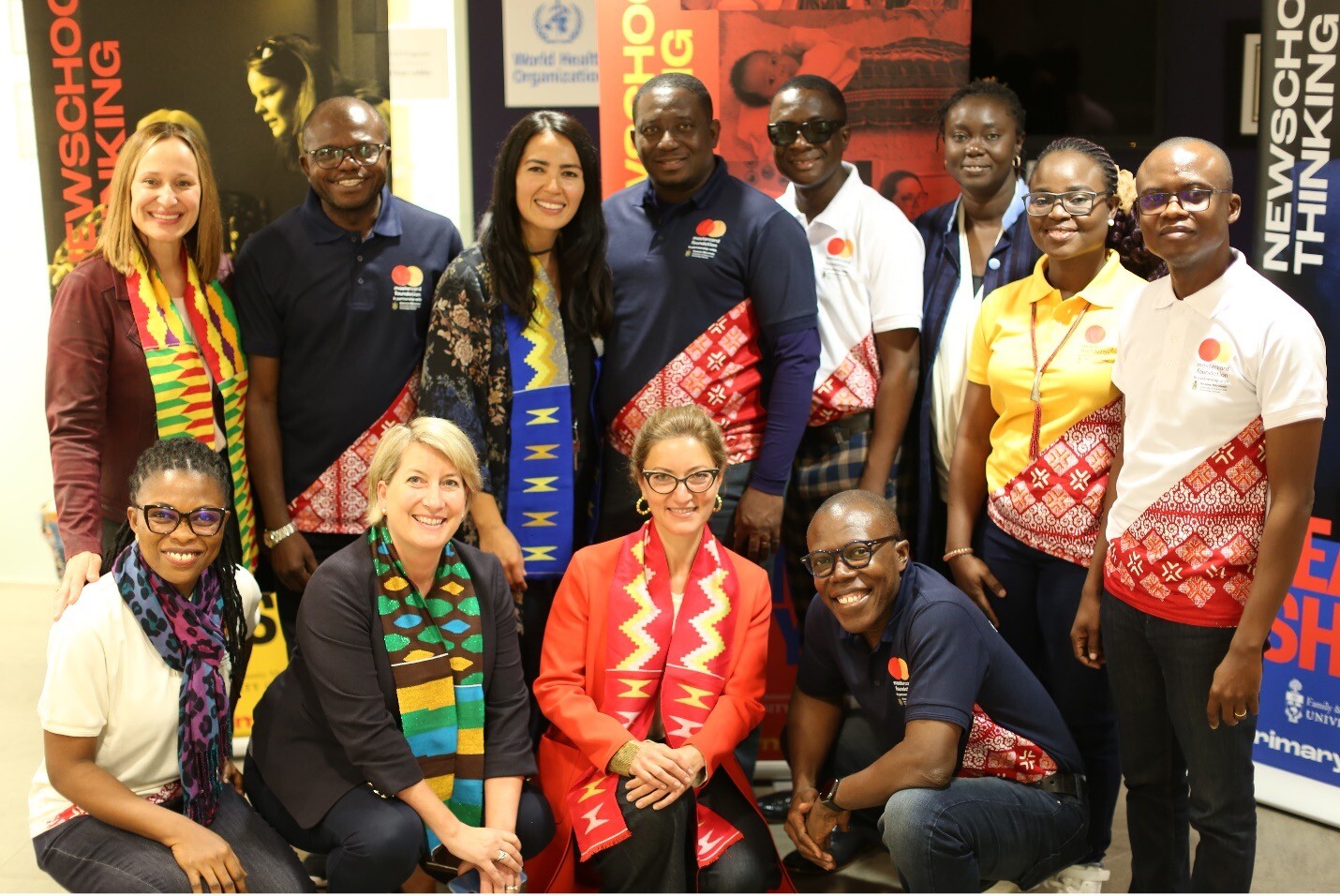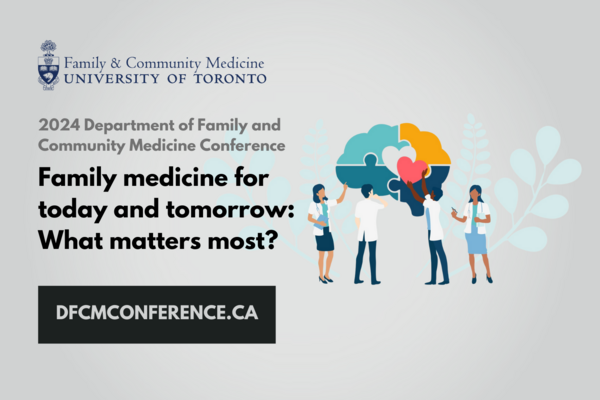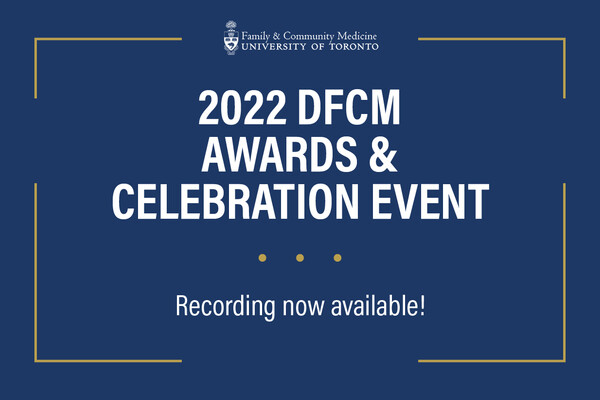Deep Roots and Strong Branches: Building the Primary Care Workforce in Ghana
As part of a 10-year initiative funded by the Mastercard Foundation, DFCM is collaborating to support and build the primary care workforce in Ghana, with a particular focus on women.

As part of the Africa Higher Education Health Collaborative (AHEHC), faculty from the Department of Family and Community Medicine (DFCM) are partnering with the School of Public Health at Kwame Nkrumah University of Science and Technology (KNUST) to co-create and co-deliver educational programs to strengthen primary health care in Ghana.
Funded by the Mastercard Foundation, KNUST’s Pro-Vice Chancellor Professor Ellis Owusu-Dabo describes the partnership as a mighty oak tree with deep roots and strong branches to provide shelter and nourishment to the people of Ghana—and beyond—for generations to come.
“Family medicine is an emerging specialty in Ghana,” explains Dr. Jennifer Wilson, a family doctor in Uxbridge and DFCM’s Mastercard Foundation Faculty Partnership Lead. “With less than 200 family doctors across the country, the vast majority of primary care is delivered by non-specialized general practitioners, nurses, midwives, and community health workers. The goal of this partnership is to build the competency of these primary care workers to meet the growing demand in Ghana and contribute to health systems that employ and retain the primary care workforce.”
Over the past year, 35 DFCM faculty members have partnered with KNUST colleagues to co-create and co-deliver five in-person short courses to support and improve health service provision across Ghana. As a result, 120 Ghanaian primary care professionals have taken part in continuing professional education courses on palliative care, community emergency care, pre-hospital emergency care, quality improvement, and emergency preparedness for epidemic-prone diseases.
One of the first courses was on palliative care, with seven DFCM faculty members teaching 20 students alongside five KNUST faculty over two modules.
“There are only a handful of trained palliative care providers in Ghana, and they simply don’t have enough teachers to increase that number organically,” explains Dr. Kirsten Wentlandt, the course lead and head of DFCM’s Division of Palliative Care. “Our role is not only helping to up-skill local care providers in collaboration with KNUST faculty but to begin to build their teaching capacity to support the field long-term.”
“The teaching experience was a whirlwind but incredibly rewarding. Our KNUST faculty were absolutely lovely, and we quickly became a cohesive 'super' team, adept at handling any challenge thrown our way. Our participants were truly remarkable; often deprived of dedicated time and support for such learning opportunities, their enthusiasm and delight were truly contagious.”
Another course on pre-hospital emergency care was led by Dr. Ian Drennan, Associate Director of DFCM’s Paramedicine Collaborative. Dr. Drennan and his team delivered their course to a group primarily made up of young nurses and midwives from rural communities.
“A lot of what we were teaching focused on early resuscitation and stabilization, or the first 10 minutes of trauma and medical emergencies,” Dr. Drennan says. “We had an amazing three days of course delivery. Our participants came in with a good fundamental understanding of our course content, but had limited opportunities to use this knowledge and practise their hands-on skills. This course allowed them to gain confidence in those areas and they were able to take what they learned back to their own centres and communities to spread that knowledge.”
Looking ahead, all DFCM teams—with support from DFCM’s Office of Education Scholarship (OES)—are reviewing the overwhelmingly positive evaluation data and preparing for the next iteration of teaching visits in 2024.
“The evaluation was a unique opportunity to explore how pedagogy in primary care is shaped by co-creation,” explains Dr. Mahan Kulasegaram, OES Director. “Across all five themes, learners almost unanimously reported that the courses provided helpful knowledge and skills for their practice and over 95% stated they would recommend this course to colleagues and peers.”
For the leadership team, one of the greatest surprises is how quickly and deeply the relationships underpinning this collaboration have flourished and allowed ambitious plans to come to fruition.
“It is a deep privilege for us to be invited into this innovative and very rich North-South co-creational partnership where shared values and principles such as respect, inclusivity, equity, reciprocity, ethics, dynamism, and stewardship are upheld and lived out,” Dr. Wilson says. “Our DFCM faculty are being stretched outside their personal and professional comfort zones as we stand shoulder to shoulder with our colleagues at KNUST and work toward the ultimate goal of health transformation for Africa. In the process, our energies are being renewed, our passion for primary care reignited, and transformation is taking place in our own lives and institutions.”










News



